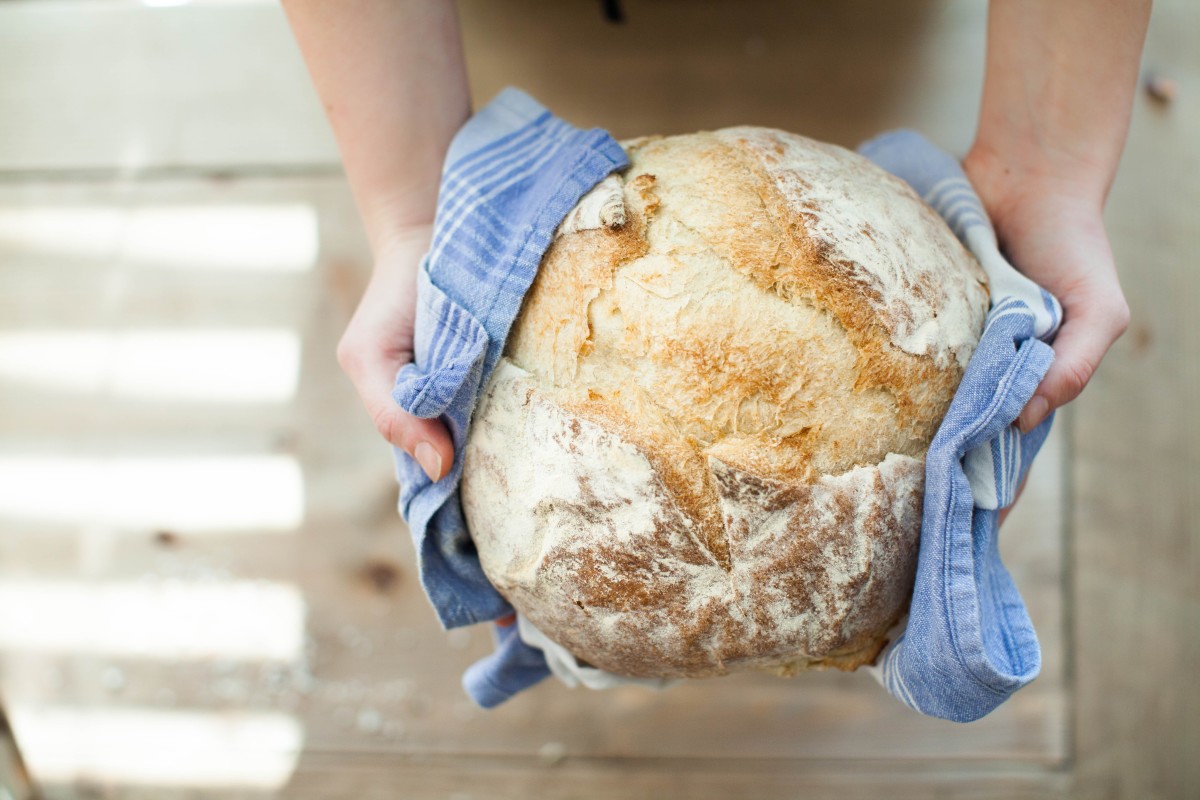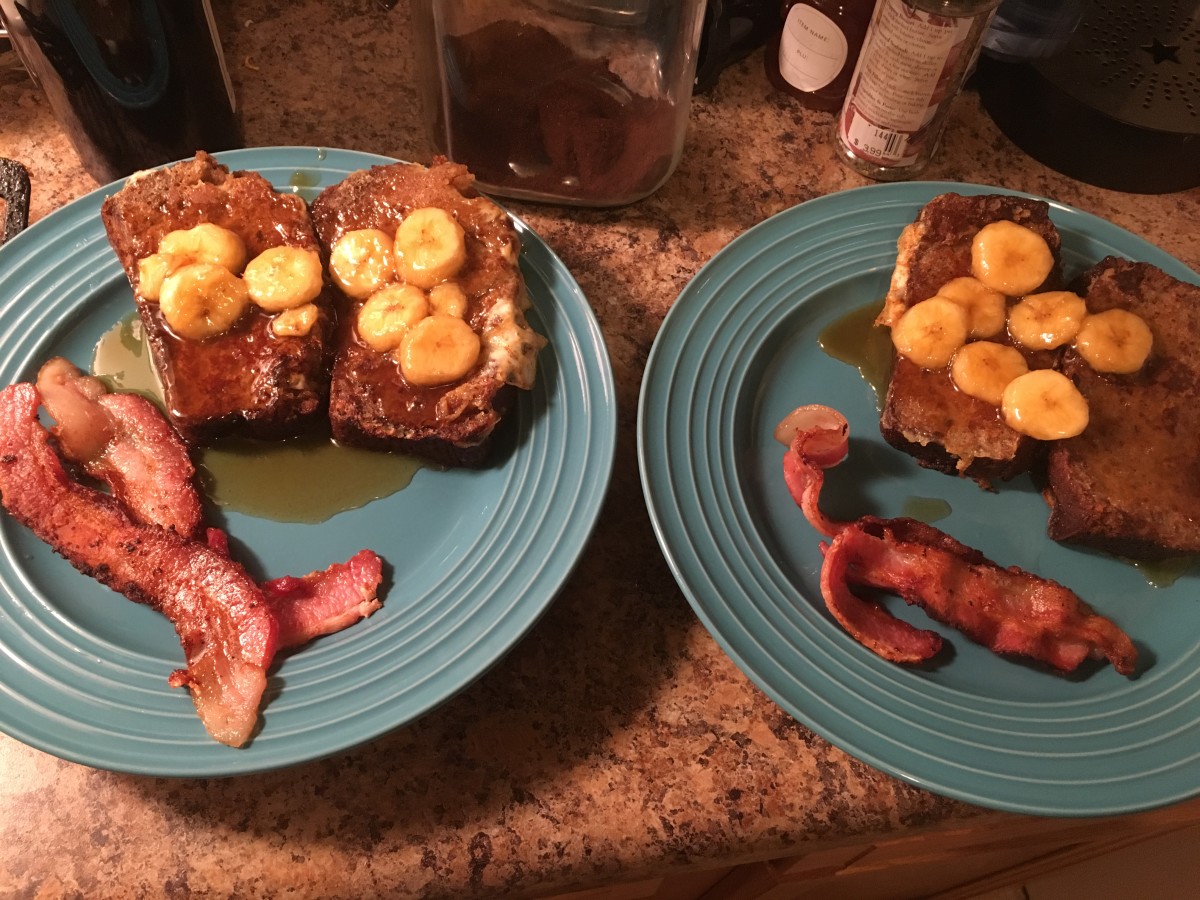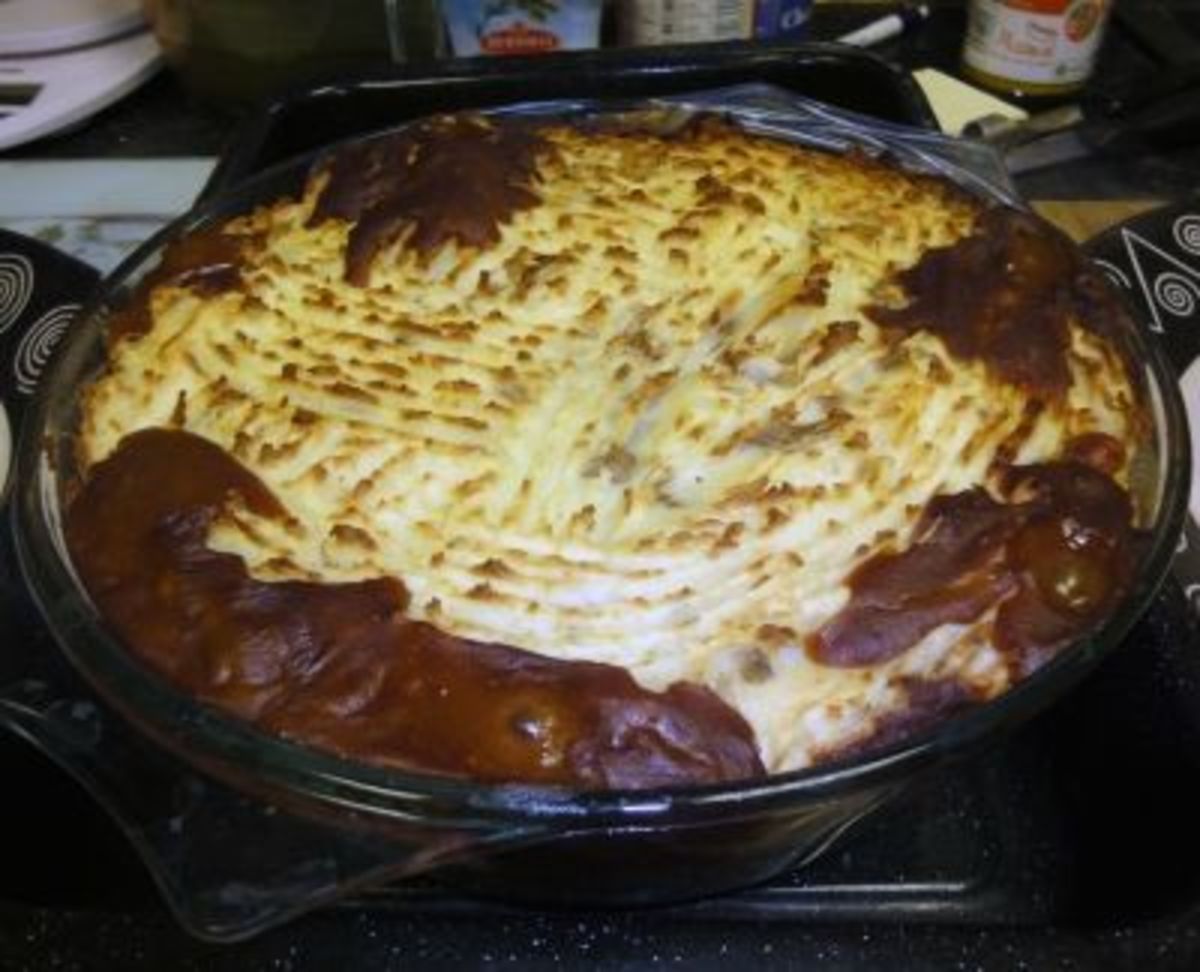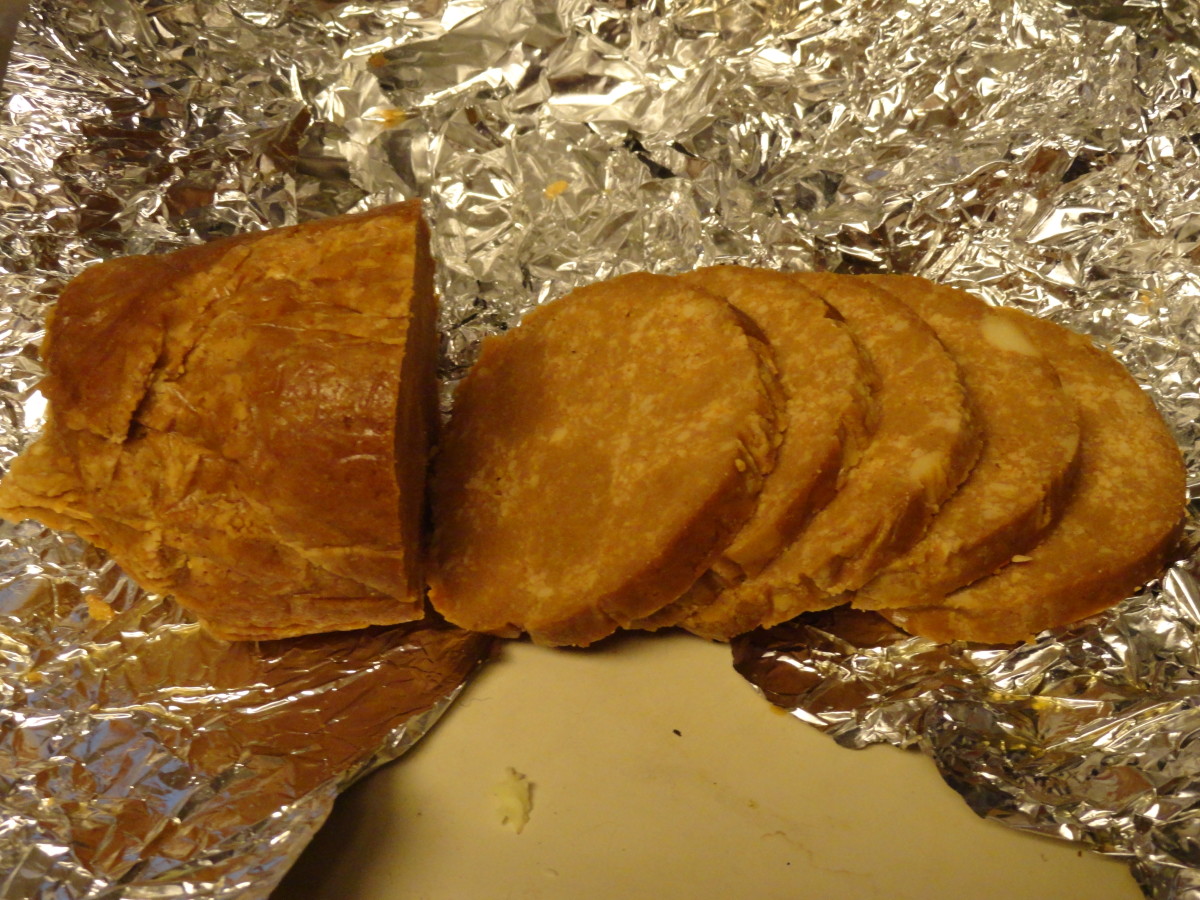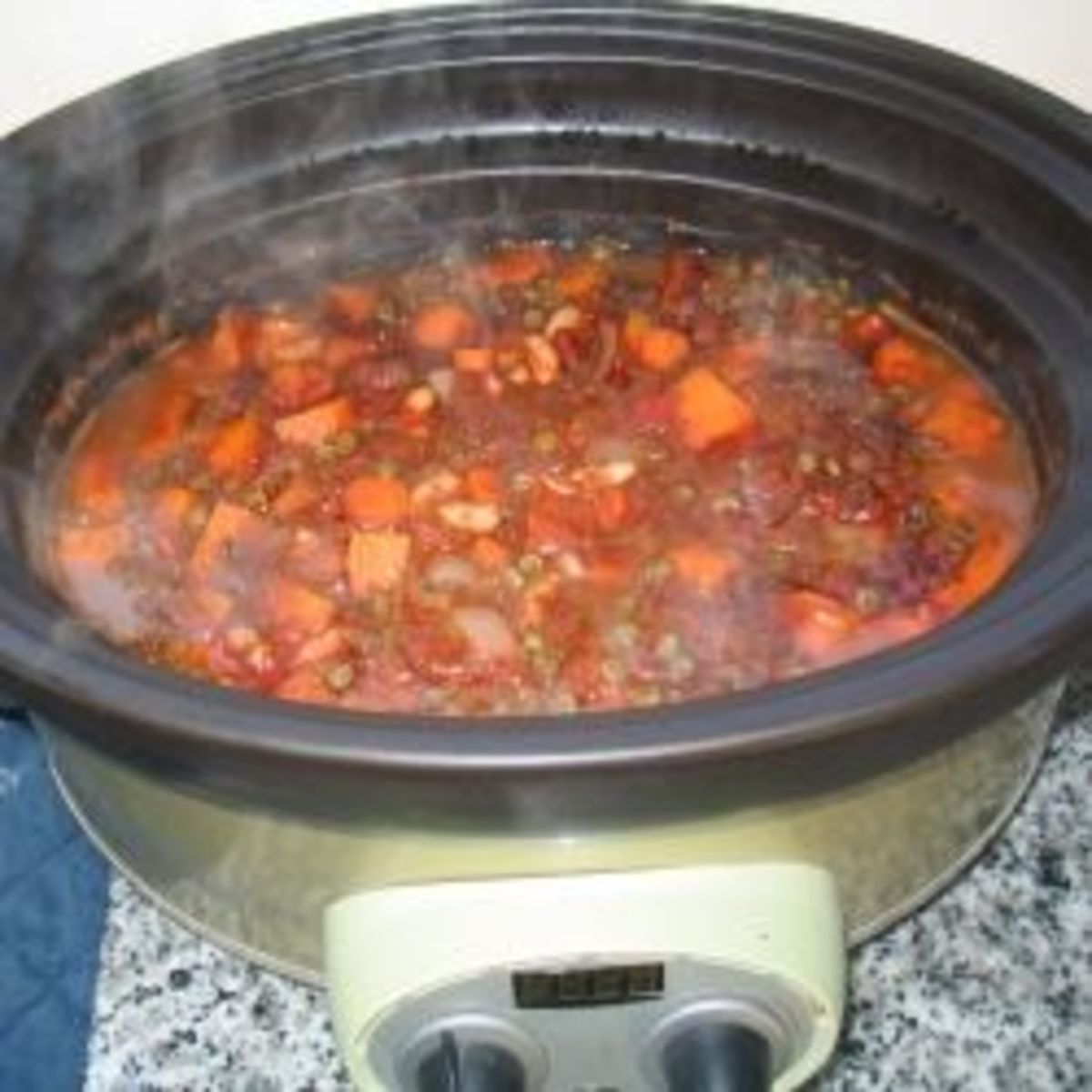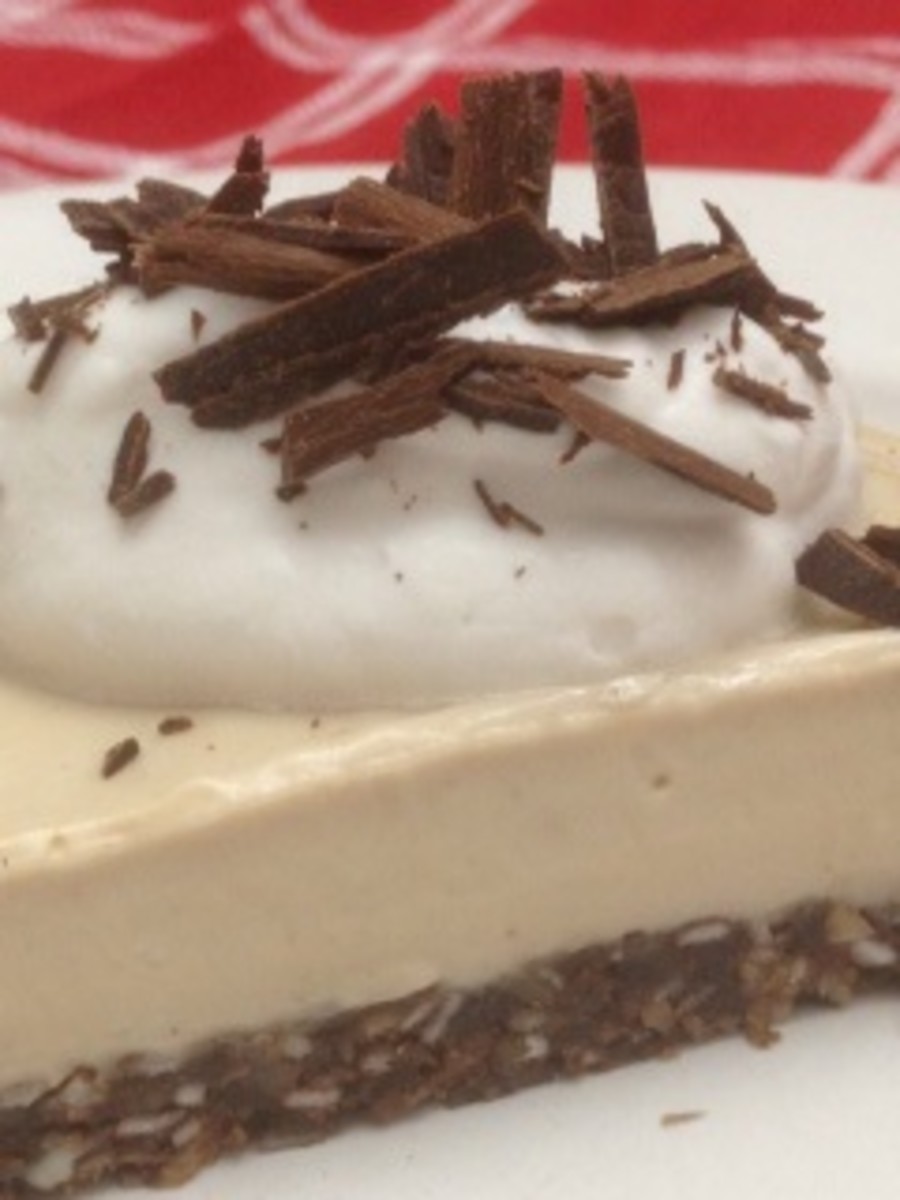A Great Tasting and Very Simple Vegan Banana Bread Recipe
Vegan Banana Bread
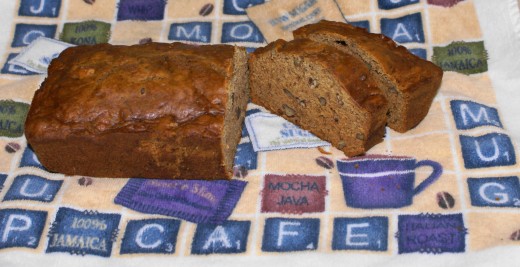
Veganism?
Are you a vegan/vegetarian?
Vegan Food Doesn't Have to be Bland or Difficult to Make
While veganism has become much more well known in recent years, it is still often very misunderstood by many people. Some of those misconceptions involve the idea that vegan diets are too limited and that without animal products it isn't possible to create a wide variety of high quality, good tasting meals. Other concerns revolve around the perception that certain vitamins and proteins the body needs are not provided by a strictly vegetable based diet. However, both these concerns are unfounded and someone who familiarizes themselves with the many different options available within a vegan diet will soon find that they can make vegetarian based alternatives to most any recipe that are both easy to make and delicious. In addition, those vegan recipes are much healthier than those using animal byproducts and with a little planning can easily provide all the essential nutrients required by the body. Another advantage to veganism is that vegetable based products do not go bad as soon as animal byproducts and do not present as serious a health risk as meat even when they do.
One area in which vegan recipes easily surpass animal-based recipes both on ease of preparation and taste is baked goods. Part of the reason for that is that baked products don't contain a lot of animal products to begin with, provided that you use quality ingredients without artificial fillers, sweeteners, or flavorings. For instance, the only major difference between this vegan banana bread recipe and regular banana bread recipes is that it doesn't contain butter and eggs. Besides eliminating the inherent messiness of melting butter and cracking eggs, the canola oil and apple sauce that replace them are much healthier and less fattening. Plus you will never even notice the difference. In fact, this recipe creates a very moist vegan banana bread that tastes as good if not better than any non-vegan banana bread recipe.
Finally, vegan food isn't just for vegans anymore. Once you know how to properly prepare vegan alternatives, you can use them to provide healthy, delicious variety to your meal choices even if you don't want to completely abstain from animal based foods. You will soon discover that vegan food is much more than tofu and soy masquerading as meat.
**All photos in this hub (except the cartoon) were taken by the author while preparing this recipe**
All Mixed Up
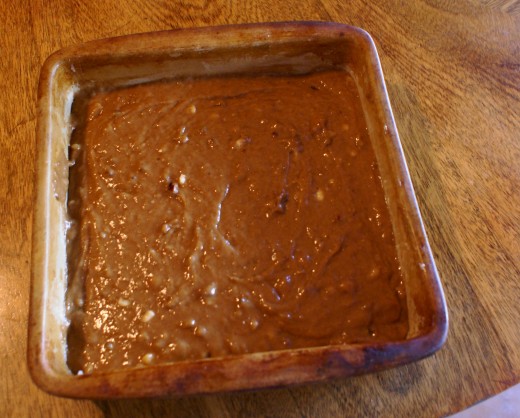
Hot and Ready
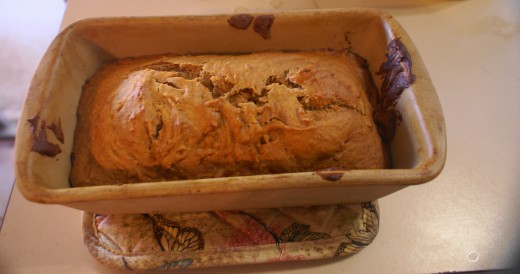
Ingredients List
- 2 or 3 (depending on size) very ripe bananas
- 1/4 cup cinnamon spiced applesauce
- 1/4 cup canola oil
- 1/2 cup sugar (can be adjusted to taste)
- 1 tablespoon molasses
- 1 tablespoon honey (or 2 tablespoons molasses; see notes)
- 2 cups all-purpose flour
- 3/4 teaspoon baking soda
- 1 teaspoon ground cinnamon
- 1/4 teaspoon pumpkin pie spice
- 1/2 teaspoon salt
Optional Ingredients
- 1/4 cup chopped walnuts (pecans can also be used; see notes)
- 1/4 cup vegan chocolate chips (see notes)
- 1/4 cub shredded coconut
- Agave Nectar as a substitute for honey/sugar (see notes)
- If desired, the canola oil can be replaced by doubling the apple sauce
Putting It Together
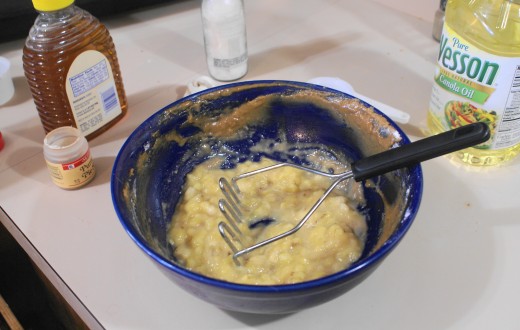
Notes and Tips
1. When mixing the batter use a potato masher instead of a whisk, which works essentially the same without all the mix getting caught inside like the whisk.
2. Many vegans include honey in the list of foods that are considered animal byproducts. If you are a strict vegan and do not wish to use honey, you can double the molasses (2 tbsp.) in place of the honey. Agave Nectar can also be used as a substitute for honey and/or sugar (2/3 cup AN in place of 1 cup sugar).
3. Chocolate, with the obvious exception of milk chocolate, is vegan (it comes from the cocoa bean). However, most of the common brands of chocolate contain fillers and preservatives that often contain animal byproducts. For a good list of vegan friendly chocolate check here.
4. Once the bananas turn black they can be frozen for future use. Any leftover banana bread can also be frozen.
Preparation
Preheat oven to 350 degrees Fahrenheit.
Lightly grease a 9 x 5 inch loaf pan with vegetable shortening.
Mash the bananas in a large mixing bowl. Once the bananas are properly mashed, add the applesauce, oil, molasses, and honey then stir rapidly until the ingredients are fully incorporated into the batter.
After all the wet ingredients are completely mixed, stir the sugar into the mixture. Next, mix in the baking soda, cinnamon, pumpkin pie spice and salt.
Add the flour and mix until the wet and dry ingredients are combined. Finally, fold any of the optional ingredients you want to add, such as chocolate chips, nuts, coconut, into the batter.
Pour the batter into the pre-greased pan and bake on the center rack of the oven for 45 to 50 minutes. Some ovens may vary slightly so make sure you check it periodically after about 40 minutes of baking time.
When fully baked the top of the loaf will be lightly browned and you should be able to insert a knife into and have it come out clean.
At that point the banana bread is ready to be removed it
from the oven and placed on a cooling rack until it has cooled enough to be removed from the baking pan. As it cools the sides of the loaf should separate from the pan.
Then after you slice it up and eat it, leave a comment below and let me what you thought of this vegan banana bread recipe.
A Moment in Vegan History
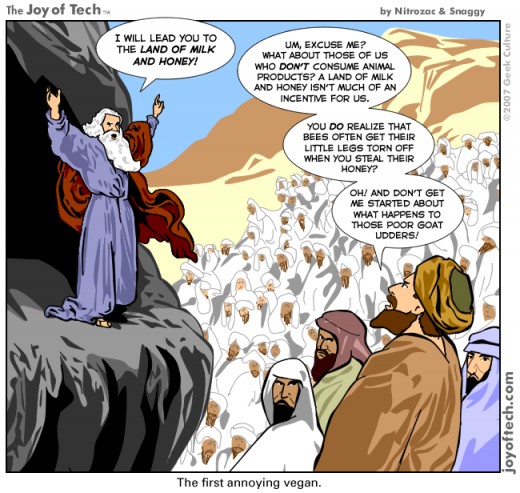
Vegan vs. Vegetarian
- Vegetarians do not eat the flesh of animals, although some vegetarians do eat seafood. Most, but not all, vegetarians do eat dairy products and eggs. Primarily, vegetarian's diets consist of plant based products.
- Vegans do not consume any animal byproducts, which includes meat and seafood as well as dairy products, eggs. In addition, most vegans do not use any products that require exploitation or cruel treatment of animals. This can include the wearing of leather and the use of products that contain animal fats or are tested on animals, among other things.
Because vegetarianism and veganism are basically two branches from the same tree, there is often some confusion over what the difference is between the two. Essentially, vegans are pure vegetarians who go the further step of not consuming or using any products that employ the use of animals or animal byproducts in their manufacture. While many vegetarians are animal lovers and that usually plays some role in their decision to avoid meat, the main reasons behind vegetarianism are often health based. However, most vegans abstain from animal byproducts out of a moral rejection of the cruelty and exploitation of the animals involved, as well as for health reasons.


